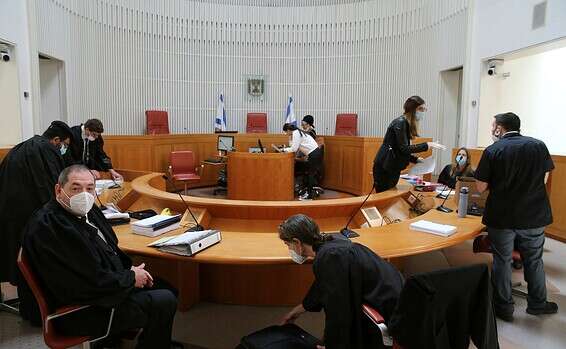Ahead of the hearing on petitions against Netanyahu's qualification to serve as prime minister, the Supreme Court president may have succeeded in acting without authority • Interpretation
Supreme Court
Photo:
Fellow Shabby
In one brief decision, with the exception of a probation order in preparation for the hearing of the petitions, the President of the Supreme Esther Hayes managed to incorporate at least seven blatant legal errors, and possibly even act without authority.
1. Conditional: Under the Rules of Procedure of the High Court, a conditional order may be issued by the judge who initially received the case (Justice Amit) or by the composition to which the case was transferred (11 judges). this.
2. Order of condition "for the efficiency of the hearing". In all of the administrative law books I am familiar with, I have found no grounds for ordering a condition called "for the efficiency of the hearing." A probationary order is given when the petitioners raise a certain burden under which the governing authority acted unlawfully.
3. The order of probation for the efficiency of the hearing is given overwhelmingly on all the remedies in all the petitions, even the most delusional ones, even those which were not made in their case before the parties, and those according to the responses of the parties already submitted, are based on denied rumors.
Netanyahu: Trying to drag the High Court into the political field
4. The probation order was issued before the respondents, especially the important respondents, such as the Attorney General and the Knesset Attorney General, even provided their preliminary response, a response requested by Judge Amit.
5. After issuing the order, without authority, without any relevant reasons and without responding to some of the respondents, the President decided that the responses already submitted would be considered as affidavits - even without authority. Under the regulations (Rule 9), if a probate order is granted, the respondent may object to making the order absolute within eight days by filing a reply affidavit. The court cannot decide for the parties what their response to the petition will be after the probation order is given. The respondent may request that the response be considered an answer, but a court that administers a legal process, not a presentation or trial, does not decide for the parties what their claims will be.
6. And perhaps worst of all, the counselor was supposed to respond to the court until the morning of Memorial Day. The court, exceptionally, refused the counsel's first rejection request, which sought comment after the other parties responded. At the second rejection request, filed for Memorial Day and Independence, he could no longer refuse. But the show must go on, and so the decision the court planned to issue today, regardless of what was written in the parties' comments, carried the president alive.
7. The seventh error is ours. Anyone who watches this behavior and expects the court to make decisions based on law and justice, I have a bridge in front of Cinema City to sell it.
Attorney Simcha Rutman is the Legal Advisor to the Movement for Governance and author of the book "High Court Party

